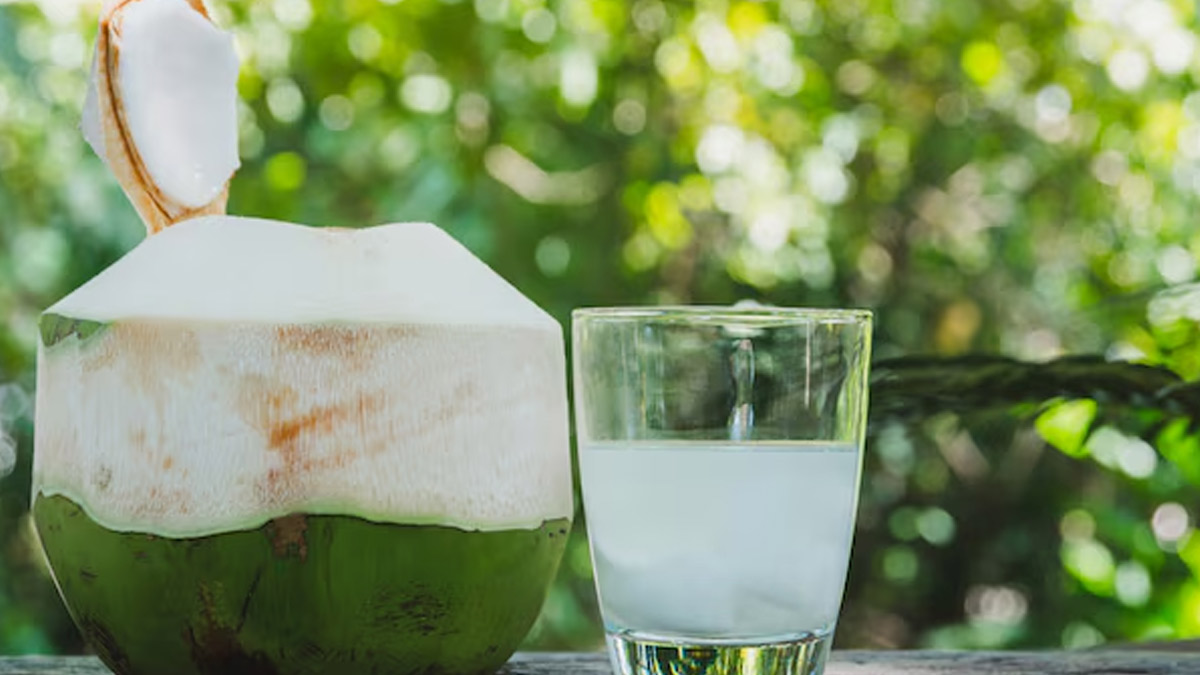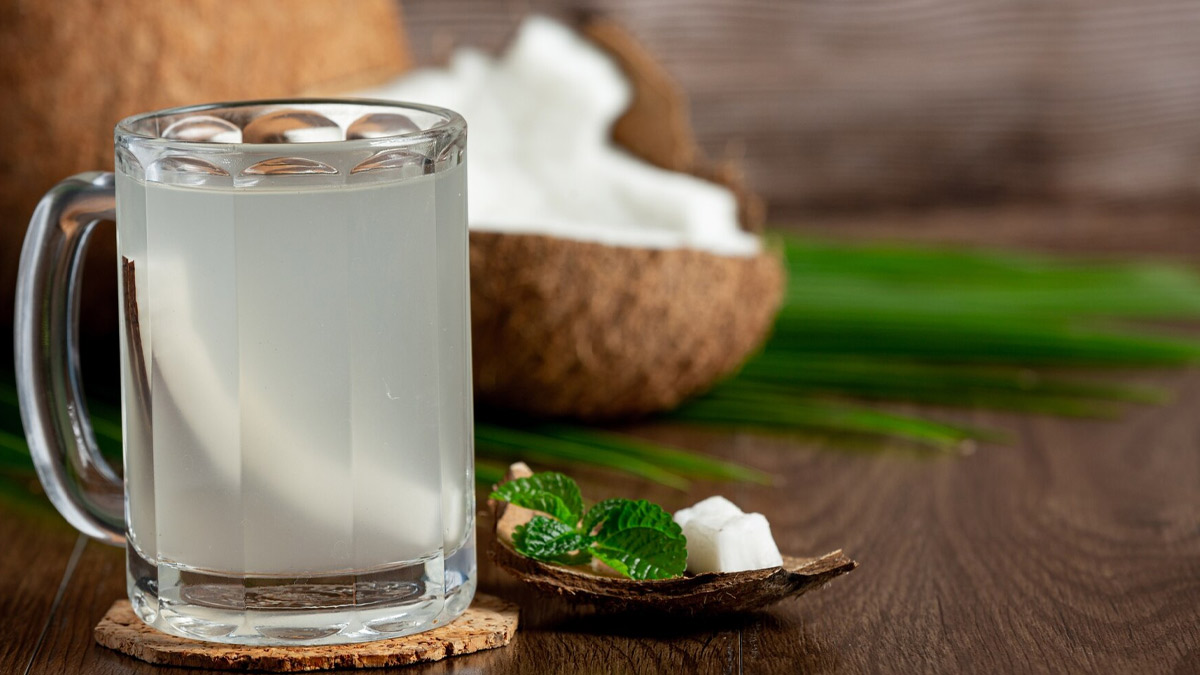
Summer is just around the corner. In some parts of India, heat wave alerts were issued recently, urging everyone living in the plains to gear up for rising temperatures. One simple yet effective way to stay hydrated is drinking plenty of fluids, which is why coconut water is a popular drink during this time. It is not only hydrating but also rich in beneficial nutrients and compounds that offer several health benefits. However, excess of anything can harm your health, and therefore, it is crucial to watch the quantity of coconut water you have.
Table of Content:-
In an interaction with the OnlyMyHealth team, Dr Srabani Mukherjee, Consultant—Nutrition and Diet, Fortis Hospital, Anandapur, highlights the benefits of staying hydrated with coconut water and shares the safe amount.
Also Read: Coconut Water As A Toner: Learn Its Benefits And How To Make It
Health Benefits Of Coconut Water

A research article published in the International Journal of Pharmaceutical Sciences Review and Research describes coconut water as a "natural thirst-quenching food." It is said to be rich in essential nutrients like sugars, proteins, amino acids, vitamins, and minerals, which help hydrate and nourish the body.
Research has shown that coconut water has medicinal benefits, including antioxidant and potential anti-cancer properties. In fact, it is believed to contain cytokinin, a compound that may help in cancer prevention.
Dr Mukherjee says, "Coconut water's electrolytes (potassium, sodium, magnesium) replenish those lost through sweat, crucial in hot weather. Its natural sugars provide mild energy, while its water content directly rehydrates. This combination balances fluid and electrolyte levels, preventing dehydration and related symptoms."
However, too much coconut water can do more harm than good.
But How Much Coconut Water Is Safe To Consume?

According to Dr Mukherjee, excessive coconut water can cause hyperkalaemia, a condition associated with high potassium levels. This can lead to cardiac arrhythmias and muscle weakness, the doctor warns. "Its diuretic effect may dehydrate if not balanced with plain water."
Additionally, the sugars in the coconut water can affect blood glucose, which can lead to serious health problems.
Also, some people who consume too much coconut water also experience digestive and kidney issues, which should prompt doctor's guidance.
Generally, 1-2 cups (240-480 ml) of coconut water daily is safe for most people, advises Dr Mukherjee, adding that those with kidney issues or taking potassium-altering medications should consult a doctor due to potential hyperkalaemia. Moreover, diabetics should monitor sugar intake.
Also Read: Instagram Leads or Misleads: Can Coconut Actually Help with Weight Loss? Expert Debunks Myth
Plain Water Vs Coconut Water: Which Is More Hydrating?

When it comes to hydration, both coconut water and plain water are great options. However, there is nothing that can match the benefits of plain water, as it has no additional substances or compounds that can affect people with pre-existing health conditions.
“While coconut water hydrates with electrolytes, it shouldn't fully replace plain water,” emphasises Dr Mukherjee, highlighting that plain water is essential for overall hydration and kidney function. Coconut water's sugars and electrolytes, in excess, can burden kidneys. So, it's best used as a supplement, not a sole hydrator.
Conclusion
Coconut water is a hydrating drink, which can prevent dehydration during hot summers. However, it should be consumed in moderation, as excessive intake can lead to complications. In particular, individuals with kidney disease should limit coconut water due to its high potassium content, which their kidneys may struggle to process. Diabetics must monitor sugar intake, and those on blood pressure or heart medications should consult a doctor due to potential electrolyte interactions, especially concerning potassium.
Also watch this video
Read Next
Sip Your Way to Better Health: Top Benefits of Drinking Kerala Special 'Chukku Kaapi' Daily
How we keep this article up to date:
We work with experts and keep a close eye on the latest in health and wellness. Whenever there is a new research or helpful information, we update our articles with accurate and useful advice.
Current Version